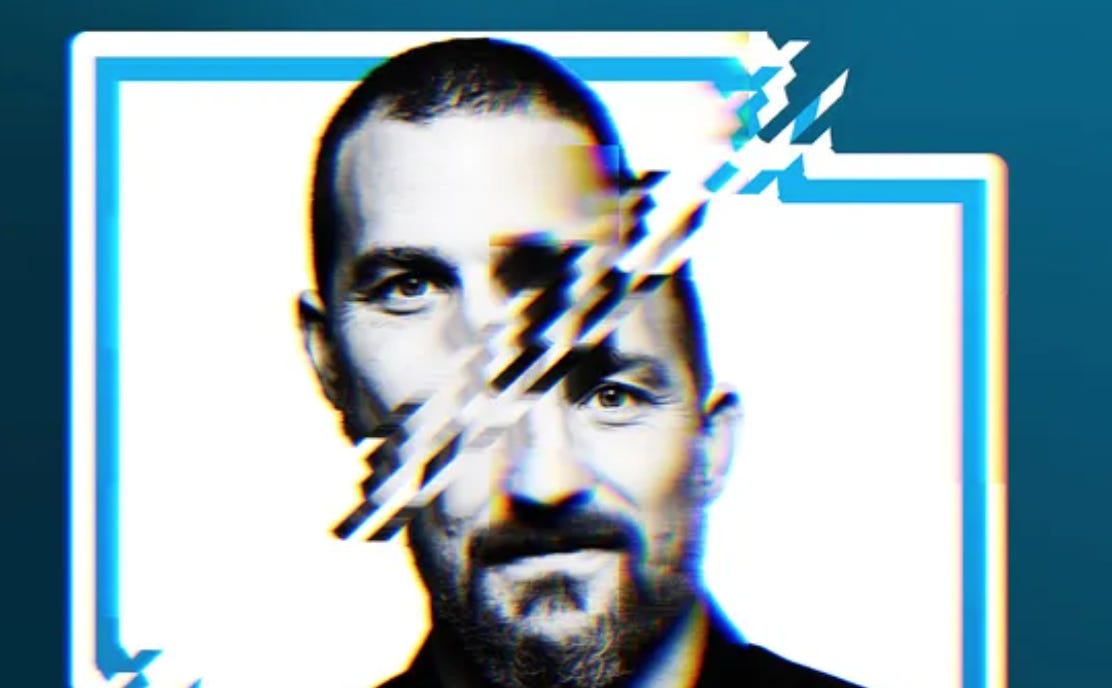Happy Friday!
Housekeeping: Helen Lewis Has Left The Chat starts on Wednesday. The first three episodes will drop on BBC Sounds and other podcast platforms, and if you click that link, you can hear the trailer already. If you recognise more than two of the voices, congratulations: you are whatever the Bluestocking equivalent of a premium subscriber is.
Helen
The British Right’s Favourite Sex Offender (The Atlantic)
In October 2017, a week after The New York Times published testimony from eight women accusing the Hollywood producer Harvey Weinstein of sex offenses, one of Weinstein’s old friends published an article defending him. “I smell a rat when it comes to Harvey Weinstein,” the writer Panagiotis “Taki” Theodoracopulos declared in the British magazine The Spectator. “Harvey’s a committed lefty, Hillary’s pal, and he thinks that the Germans were all bad 70 years ago (he’s totally and catastrophically wrong on all counts). But I really like him.”
The column was classic Taki: provocative, arrogant, and self-incriminatory. (The writer, who is universally known by his nickname, was once described by The Spectator’s former owner as having views “almost worthy of Goebbels.”) “In Harvey’s case, there is a lot to hang him with, and now that it’s out in the open, they are all creeping out of the woodwork,” he wrote. “Even an ugly waitress has suddenly recalled that she served the ‘pig’ while he hit on women.”
Reading these words, the historian and novelist Lisa Hilton, an occasional Spectator contributor, was appalled. “It was the hypocrisy of the whole thing,” she told me recently, over coffee at the Royal Academy of Arts in London. His comment about ugly waitresses suggested, Hilton said, that “women were to be judged on a scale, of his idea whether or not they were attractive enough to deserve to be raped.”
Hilton decided that she had to say something—not least because in 2009, at his chalet in Switzerland, Taki had tried to rape her.
I worked on the story above for several months, and honestly—I don’t think any British publication would have published it, because of the combination of intensive reporting and factchecking needed, and because no one wants to criticise a magazine as influential as The Spectator. You can see how powerful the magazine is from the suitors circling since the Telegraph group went up for sale: Murdoch wants it, Paul Marshall wants it, the UAE wants it… and the Barclay family wants to keep it.
There’s a lot to like about the Spectator, but its indulgence of Taki for 50 years is baffling. This isn’t just a story of changing social mores and how the woke revolution that means you can’t say anything any more: back in 2001, the magazine’s own proprietor Conrad Black described Taki in the pages of his own magazine as having views “almost worthy of Goebbels.” According to Black, his own columnist had asserted that the Jews “have suborned the US government, direct that country's military like a docile attack dog, and glory in the murder of innocent or mischievous children. He presents the universal Jewish ethos as brutish, vulgar, grasping and cunningly wicked. It is a fearful thing to contemplate that someone with whom I have had such long and cordial relations should use a publication of ours for such malignant purposes, however veiled in his familiar recourse to harmless excess, or even amplified by his frequent and publicly confessed intake of intoxicating substances.”
Taki stayed at the Spectator for another 22 years after that.
Andrew Huberman’s Mechanisms of Control (New York magazine)
On January 11, a woman we’ll call Alex began liking all of Sarah’s Instagram posts, seven of them in a minute. Sarah messaged her: “I think you’re friends with my ex, Andrew Huberman. Are you one of the woman he cheated on me with?” Alex is an intense, direct, highly educated woman who lives in New York; she was sleeping with Andrew; and she had no idea there had been a girlfriend. “Fuck,” she said. “I think we should talk.”
Over the following weeks, Sarah and Alex never stopped texting. “She helped me hold my boundary against him,” says Sarah, “keep him blocked. She said, ‘You need to let go of the idea of him.’” Instead of texting Andrew, Sarah texted Alex. Sometimes they just talked about their days and not about Andrew at all. Sarah still thought beautiful Eve, on the other hand, “might be crazy,” but they talked some more and brought her into the group chat. Soon there were others. There was Mary: a dreamy, charismatic Texan he had been seeing for years. Her friends called Andrew “bread crumbs,” given his tendency to disappear. There was a fifth woman in L.A., funny and fast-talking. Alex had been apprehensive; she felt foolish for believing Andrew’s lies and worried that the other women would seem foolish, therefore compounding her shame.
I’ve had my eye on Andrew Huberman for some time. He emerged as king optimiser on the podcast circuit, shilling all kinds of wellness crap while making great play of his Stanford affiliation. He has that attractive-but-should-be-alarming combination of intense charisma, a polished hard-luck origin story and the ability and desire to expound on everything under the sun in science-effect language. (Honestly, will no one learn the lessons of Jordan Peterson?) In fairness, it is a real boost to his claims to be an optimiser that he managed to keep five girlfriends at once.
This piece—once you get past the overlong intro section—is a great demonstration of the use of telling details in a feature. The embryo denial! The HPV test! The nine minutes slagging off one woman who was disappointed that you missed a meeting!
Quick Links
“Sloths that survive electrocution are creating a reputation for grit over chill. Sandi recalls a time when she placed a sloth that had just had surgery to amputate a limb near a tree in an enclosure at the Toucan Rescue Ranch. She went to get a cup of coffee, figuring it would be a long time before this slowest of mammals made a move. But when she came back, the sloth was gone.” I was not emotionally prepared for the Browser’s recommendation of this piece on how deforestation means that sloths are getting electrocuted by climbing across power lines. (Revelator)
I read this Observer 9/11 special by Armando Iannucci and Chris Morris—published six months after the event, back in March 2002—and lolled several times. The late drive-by on Stephen Fry is particularly brutal.
Weezer’s “Say It Ain’t So” was based on a misunderstanding, according to this oral history of the Blue Album. Also, please appreciate how the paper has delicately bowdlerised “wife beater” into “sleeveless undershirt” (LA Times).
“The central idea of Who’s Afraid of Gender? is that fascism is gaining strength around the world, and that its weapon is what Butler calls the ‘phantasm of gender,’ which they describe as a confused and irrational bundle of fears that displaces real dangers onto imaginary ones.” A generous, but nonetheless pretty brutal, review of Judith Butler’s new book by Katha Pollitt (Atlantic, gift link).
‘“It was devastatingly politically effective,” [George] Osborne told me, of austerity. It’s just that the effects were so horrendous. Between 2010 and 2018, funding for police forces in England fell by up to a quarter. Officers stopped investigating burglaries. Only four per cent now end in prosecution. In 2021, the median time between a rape offense and the completion of a trial reached more than two and a half years. Last fall, hundreds of school buildings had to be closed for emergency repairs, because the country’s school-construction budget had been cut by forty-six per cent between 2009 and 2022.’ Sam Knight’s autopsy on 14 years of Conservative rule; he’s certainly done the legwork when you look at who’s quoted here (New Yorker).
Really thorough Carole Hooven analysis of why men dominate the top levels of chess. tl;dr, there does appear to be a biological component—higher competitiveness linked to higher T—but social factors are important too (Quillette)
“This is a story about being 21. Do you remember turning 21? At 18 you feel immortal but just three years later, a crack has opened in that immortality. You feel the gap between ambitions held and realized. You're aware that wanting things badly enough won't always be enough. You guard against bad energy and thoughts and hold fast to every ounce of confidence. That's when life really begins.” I love Wright Thompson’s writing so much I will forgive him writing about sports, and specifically here the NCAA star Caitlin Clark, whom honestly I could not pick out of a line-up (ESPN).
Very lovely piece by my colleague Daniel Engber on the psychologist Daniel Kahneman, and the exemplary way he dealt with realizing that hefty chunks of his bestseller Thinking Fast And Slow were complete bollocks (The Atlantic).
See you next time!





I teach at Iowa, so I enjoyed the Caitlin Clark piece. I have a lot of athletes in some of the courses I teach, so the focus on student athlete and team culture was fascinating.
Many faculty are now suddenly REALLY interested in women's basketball (many of my friends/colleagues now have season tickets, when I doubt they'd ever attended an athletic event here prior to Caitlin Clark), something I think is a little funny considering how indifferent and often disdainful they have been of college sports in the past.
The Hooven piece is terrific - I admire how she puts up hypotheses one after the other, gives them the very best evidence she can find, and then knocks them down. Certainly about as far from the traditional pyramid news story structure as it’s possible to be.